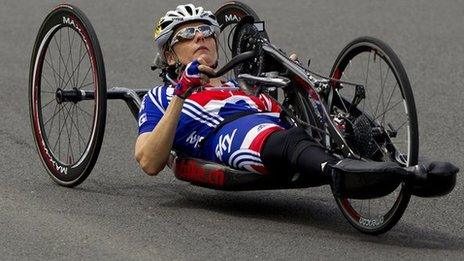GB seek more funding after Special Olympics success in LA
- Published
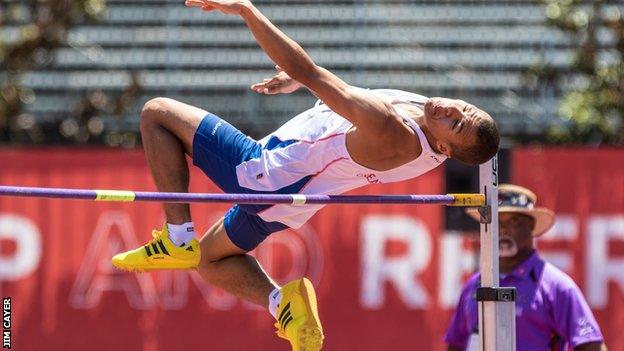
Seventeen-year-old Jordan Okonta from West Sussex won gold in the high jump
Great Britain finished with a total of 179 medals at the biggest ever Special Olympics in Los Angeles.
Team leaders hailed the performance of the GB squad but called for more funding to ensure future success and opportunity for athletes with intellectual disabilities.
In total, 115 competitors from Special Olympics GB won 68 golds, 69 silvers and 42 bronze medals across 19 sports.
The team were helped by a £2m government contribution towards the cost of the trip but Special Olympics GB president Lawrie McMenemy, the former Southampton manager, said more cash needed to be spent.
"I don't think we do get sufficient funding," he said.
"The Government did make a donation and we are grateful and delighted at that but I think that should carry on."
The games saw 500,000 spectators watch 7,000 athletes with intellectual disabilities from 177 countries compete in 25 sports.
Narrowly missing out on more medals |
|---|
Great Britain also claimed 29 fourth-placed finishes at the Special Olympics. |
Among the British stars was Bolton cyclist Kiera Byland, who won three golds. She said: "I loved winning the three gold medals and thought that would be the best part - but just being here was just as good."
Equestrian rider Georgina Maton, from Hertfordshire, was also a triple gold medallist. She told the BBC: "I have always dreamed of it but I didn't really think I would have achieved what I have achieved."
Britain's rhythmic gymnastics squad won 36 medals while artistic gymnast Holly Riseborough, from Coventry, scooped four golds and a silver on the final day of competition.
Daniel Wolff, from Surrey, won gold in the 400m - 79 years after his great-grandfather Frederick Wolff did the same in the 4x400m relay at the 1936 Berlin Olympics.
Kayaker Steven Dodd from Plymouth told the BBC: "It's one experience I will treasure for the rest of my life. I want to train for the next games, starting from when I get back to Plymouth."
The games were created in 1968 by the late Eunice Kennedy Shriver - the sister of former United States president John F Kennedy.
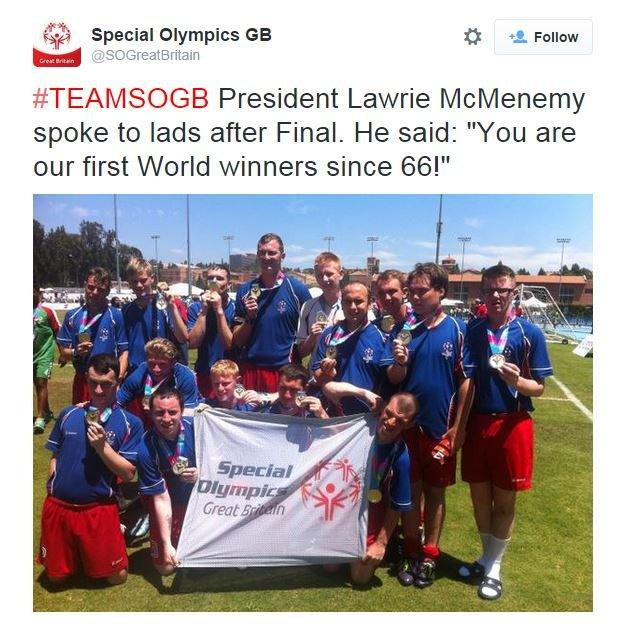
The Great Britain team celebrate after winning football gold
Special Olympics chairman Timothy Shriver, son of Eunice, said he hoped the coverage of the games would improve equality for those with learning difficulties.
"Why not have every school in the UK have an inclusive sports team - a unified sports team?" he said.
"A Special Olympics unified sports programme in every school, in every sports club in the United Kingdom. What a statement that would make."
The next Special Olympics World Games are the winter games in Austria in 2017.
- Published2 August 2015
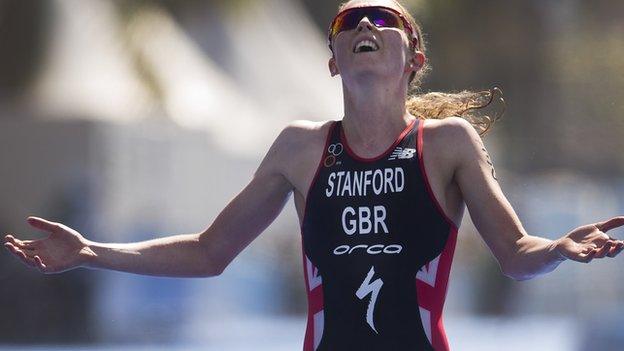
- Published1 August 2015
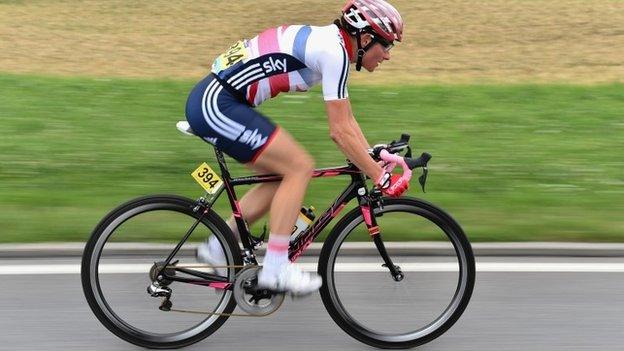
- Published27 July 2015
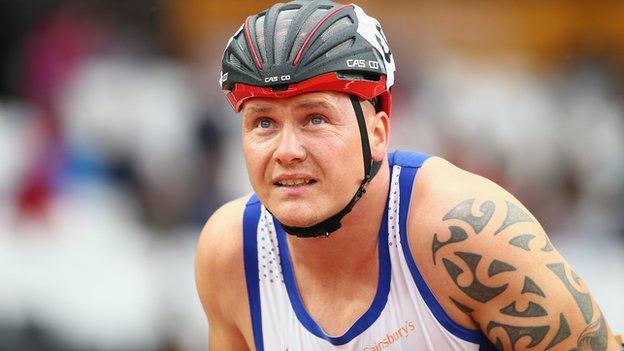
- Published5 September 2016
